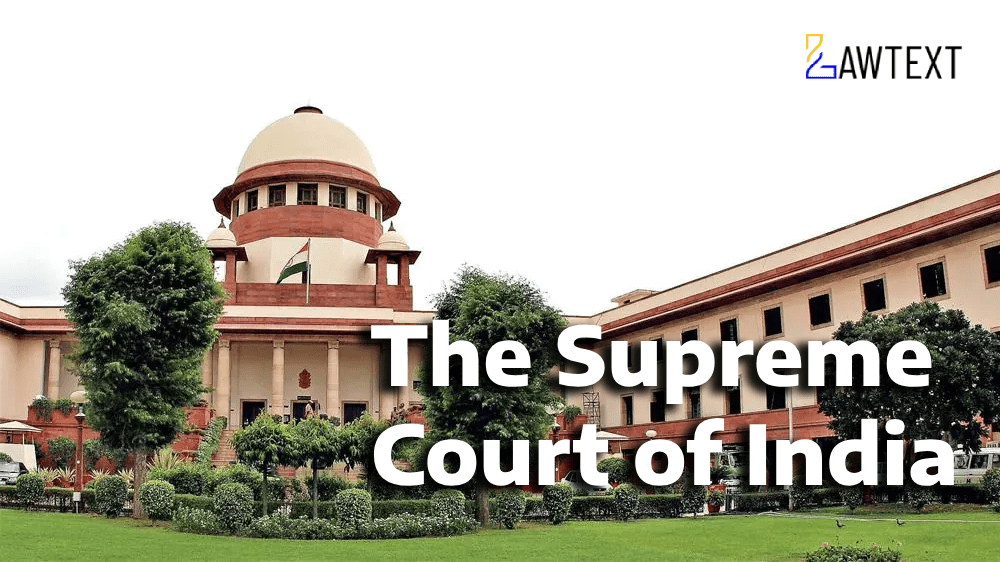

Disobedience of an injunction order remains punishable even if the underlying suit is later dismissed (Samee Khan v. Bindu Khan). A lawyer’s undertaking on behalf of a client binds the client unless promptly disputed, and no such dispute was raised here (Himalayan Coop. Group Housing Society v. Balwan Singh). The purpose of contempt jurisdiction is to uphold the dignity of the court and ensure compliance with its orders (Supreme Court Bar Assn. v. Union of India).
The Supreme Court upheld the High Court’s finding of contempt, affirming that the appellants had knowingly disobeyed court orders and alienated the property despite repeated undertakings and injunctions.
Final Order:
Civil imprisonment for three months was set aside due to the appellant’s advanced age. Attachment of the suit property for one year was upheld. Compensation was enhanced from Rs. 10 lakhs to Rs. 13 lakhs with 6% simple interest from 2nd August 2013. The appeal was partly allowed with the above modifications.
Acts and Sections Discussed:
Constitution of India (COI) – Article 141
Code of Civil Procedure, 1908 (CPC) – Order XXXIX Rule 2A, Order XLIII Rule 1(r), Section 151
Contempt of Courts Act, 1971 – Section 2(b)
Subjects:
Contempt – Disobedience – Undertaking – Alienation – Injunction – Civil Imprisonment – Compensation – Attachment of Property
Nature of the Litigation:
Civil Appeal arising from the judgment of the High Court of Karnataka, holding the appellants guilty of contempt of court for disobedience of an undertaking given before the Trial Court not to alienate the suit property.
Relief Sought:
The appellants sought to challenge the High Court’s order holding them guilty of contempt and imposing civil imprisonment, attachment of property, and compensation.
Reason for Filing the Case:
The respondents alleged that the appellants had willfully disobeyed their undertaking not to alienate the subject property despite repeated court orders.
Prior Decisions:
Trial Court dismissed the Original Suit No. 4191 of 2007 on 2nd January 2017, holding the respondents had not proved their claims.
High Court of Karnataka allowed the appeal in Miscellaneous First Appeal No. 7055/2013, setting aside the Trial Court's order and holding the appellants guilty of contempt.
Issues:
a) Whether the appellants were guilty of willful disobedience of the undertaking given before the Trial Court?
b) Whether the High Court was justified in setting aside the Trial Court’s order and imposing civil imprisonment and compensation?
Submissions/Arguments:
a) Appellants contended that there was no specific order restraining alienation of the property and that the description of the property was ambiguous.
b) Appellants claimed that the undertaking given by their counsel lacked their express authorization.
c) Appellants tendered an unconditional apology and cited health issues and advanced age as mitigating factors.
d) Respondents argued that the undertaking was clear, repeatedly recorded, and made part of the court’s order, which was willfully violated.
Citation: 2025 LawText (SC) (3) 52
Case Number: CIVIL APPEAL NO. 13999 OF 2024 (Arising out of SLP(C) No.13875 OF 2021)
Date of Decision: 2025-03-05
Case Title: SMT. LAVANYA C & ANR. VERSUS VITTAL GURUDAS PAI SINCE DESEASED BY LRS. & ORS.
Before Judge: (PANKAJ MITHAL J. , SANJAY KAROL J.)
Appellant: SMT. LAVANYA C & ANR.
Respondent: VITTAL GURUDAS PAI SINCE DESEASED BY LRS. & ORS.